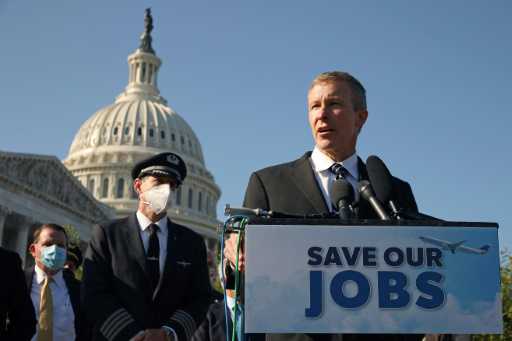CEOs in U.S. weather pandemic with compensation largely intact
12 November, 2020

Even while the pandemic roils the American economy, compensation for U.S. chief executives has largely held up as many corporations adjust their requirements for performance pay and bonuses through the crisis.
Only about one-fifth Russell 3000 index of publicly traded organizations have reduced CEO pay, according to data compiled by the Conference Board with the consultancies Semler Brossy and Esgauge.
Corporate boards have chosen generous packages for executives at the very top even when, in many cases, firms have already been laying off workers.
For CEOs, "it's heads I win, tails I don't lose," said Jesse Fried, a Harvard Law School professor focusing on executive compensation.
Fried said boards of directors seem to be willing to make adjustments to compensation conditions when it results in a boost for CEOs, but rarely will cut pay.
"Sometimes, there are known reasons for such adjustments: the necessity to retain talent, or better motivate managers," he said.
"But you will find a problem here: when firms experience positive shocks that contain nothing in connection with the CEO's own performance, the compensation committee never adjusts CEO pay downwards in order that the CEO is not overcompensated."
Concerns on executive pay were rising even prior to the pandemic. CEO median compensation for the Russell 300 organizations was $4.3 million in 2018, the newest data available. For the most notable 500 firms, total pay hit $14.8 million or 264 times average worker pay in 2019, based on the AFL-CIO labor federation.
Many boards look like willing to forget the impact of the COVID-19 pandemic as one factor unrelated to CEO performance regardless if the company is hurting, according to Fried.
There have been some notable cases of cuts -- United Airlines chairman Oscar Munoz and CEO Scott Kirby decided to waive their salaries for several months as the carrier took a extreme blow from a downturn in travel. Munoz in 2019 received $1.25 billion in base pay plus some $11 million in bonus and stock awards.
Other organizations have reworked their compensation standards to make sure top executives don't visit a major change.
A complete of 195 businesses in the Russell 3000 have made changes to incentive pay since March 1.
Nike, for example, has changed its incentive pay for CEO John Donahoe, discarding its previous metric of profit per share and income for one based on its relative performance to other Standard & Poor's 500 businesses for the future.
In the contact year ended in-may, Donahoe did not meet performance goals set by the board but were left with a special cash bonus of $6.75 million for a complete of $53.5 million.
One-third of the Russell index organizations have moved to limit twelve-monthly bonuses for top executives.
But roughly the same number of companies have moved to change the criteria on which bonuses are accorded.
Darden Restaurants for instance chose to exclude sales between March and May 2020 when it calculated bonuses for the fiscal year ending in-may. Chief executive Gene Lee ended the entire year with a package worth $8.7 million, down from $10.7 million the prior year.
Wynn Resorts meanwhile made a decision to use different data from the next half of the entire year for its calculations after many of its casinos and hotels were closed or saw limited activity earlier in the entire year.
"Investors want to boards and specifically compensation committees to be judicious" on compensation and incentive pay, said Glenn Davis, deputy director of the Council of Institutional Investors.
"On the main one hand, you intend to continue to incentivize managers. And alternatively, additionally you don't want to expose the company to criticism that the board is moving the goalposts for the business leaders at the same time when they are facing very hard decisions."
Analysts explain there is nothing improper about changing the criteria for incentive pay in light of the extraordinary circumstances.
But corporate boards should be ready to answer shareholders who may be displeased with high executive pay when organizations are in crisis.
"The key theme has been around proportionality: making sure the pay opportunities are aligned with the reset goals and with the effect on broader stakeholders, employees, customers and suppliers," said Greg Arnold, managing director at Semler Brossy.
Arnold said the broader take on compensation and incentives is a focus in boardrooms for quite a while and that "the pandemic accelerated" the trend.
Source: japantoday.com
TAG(s):
